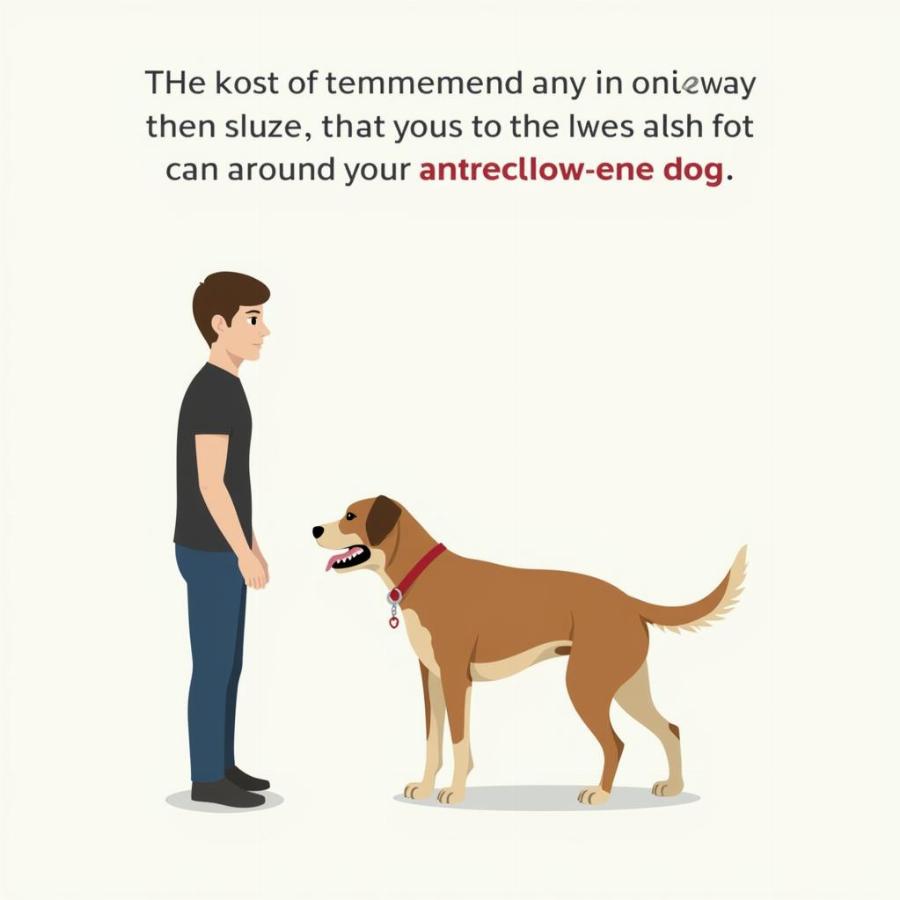The term “most vicious dogs” often sparks heated debate, conjuring images of inherently aggressive animals. But is aggression truly ingrained in certain breeds, or is it a product of nurture rather than nature? This article delves into the complexities surrounding canine aggression, exploring factors that contribute to aggressive behavior, debunking common myths, and offering insights into responsible dog ownership, particularly for breeds often labeled as “vicious.”
Understanding Canine Aggression: It’s More Than Just Breed
While some breeds might possess physical traits that make them more capable of inflicting serious damage, labeling an entire breed as inherently “vicious” is misleading and inaccurate. Aggression in dogs is a complex behavioral issue influenced by a multitude of factors, including genetics, upbringing, training, and environment. Focusing solely on breed ignores the crucial role of responsible ownership in shaping a dog’s behavior.
The Role of Genetics: Predisposition vs. Predetermination
Certain breeds were historically bred for specific tasks, such as guarding livestock or hunting. These breeds may have a genetic predisposition towards certain behaviors, including protective instincts or a higher prey drive. However, predisposition doesn’t equate to predetermination. A dog with a higher prey drive, for example, isn’t automatically destined to attack smaller animals. Proper socialization and training can channel these instincts into appropriate outlets.
The Power of Nurture: Environment and Upbringing
A dog’s environment and upbringing play a crucial role in shaping its behavior. Dogs raised in abusive or neglectful environments are more likely to develop aggressive tendencies. Lack of socialization, inadequate training, and exposure to traumatic events can all contribute to aggressive behavior, regardless of breed.
Debunking Myths About “Vicious” Dog Breeds
The media often perpetuates stereotypes about certain dog breeds, leading to unwarranted fear and prejudice. These stereotypes can result in breed-specific legislation, which unfairly targets responsible owners and fails to address the root causes of canine aggression. It’s crucial to remember that any dog, regardless of breed, can exhibit aggressive behavior under certain circumstances.
Focusing on Responsible Ownership: Prevention is Key
Preventing aggression requires a proactive approach focused on responsible ownership. This includes:
- Early Socialization: Exposing puppies to a variety of people, animals, and environments helps them develop appropriate social skills.
- Consistent Training: Positive reinforcement training methods build a strong bond between dog and owner and teach dogs acceptable behaviors.
- Meeting a Dog’s Needs: Providing adequate exercise, mental stimulation, and a nurturing environment helps prevent frustration and boredom, which can contribute to aggression.
What to Do If You Encounter an Aggressive Dog
If you encounter an aggressive dog, it’s crucial to remain calm and avoid making sudden movements. Do not run, as this can trigger a chase response. Instead, stand still, avoid direct eye contact, and slowly back away. If the dog attacks, protect your face and neck and try to curl into a ball.
 Gặp chó hung dữ
Gặp chó hung dữ
Conclusion: Moving Beyond Labels
The concept of “most vicious dogs” is a dangerous oversimplification. While some breeds might be physically more capable of inflicting damage, aggression is a multifaceted issue influenced by a complex interplay of factors. Focusing on responsible ownership, including early socialization, consistent training, and meeting a dog’s needs, is the most effective way to prevent aggressive behavior and ensure harmonious relationships between humans and their canine companions. Let’s move beyond breed-specific labels and work towards creating a safer and more understanding environment for all dogs.
FAQ: Addressing Common Concerns
- Are certain breeds inherently more aggressive? No, while some breeds might have genetic predispositions, aggression is primarily a product of environment and upbringing.
- How can I socialize my puppy? Expose your puppy to various people, animals, and environments in a positive and controlled manner.
- What should I do if my dog shows signs of aggression? Consult a certified professional dog trainer or behaviorist for guidance.
- Is breed-specific legislation effective? No, it unfairly targets responsible owners and doesn’t address the root causes of aggression.
- How can I protect myself from an aggressive dog? Remain calm, avoid eye contact, and slowly back away. If attacked, protect your face and neck.
- What are some signs of dog aggression? Growling, snarling, snapping, lunging, and biting are common signs.
- How can I prevent my dog from becoming aggressive? Early socialization, consistent training, and a nurturing environment are key.
Further Reading
- how to keep dogs from peeing on your lawn
- vicious dog rescue
- how do you keep dogs from pooping in your yard
Beaut Dogs: Your Trusted Source for Canine Expertise
Beaut Dogs is your go-to resource for all things canine, providing reliable, in-depth information about the wonderful world of dogs. From breed-specific insights to expert advice on care and training, we’re here to help you navigate the joys and responsibilities of dog ownership. When you need expert advice, contact us via Email: [email protected] for detailed and accurate information from Beaut Dogs. Visit https://beautdogs.com today and discover the fascinating world of dogs!